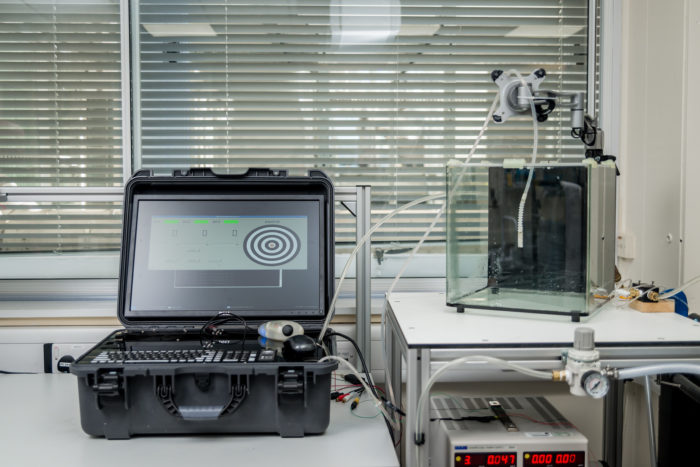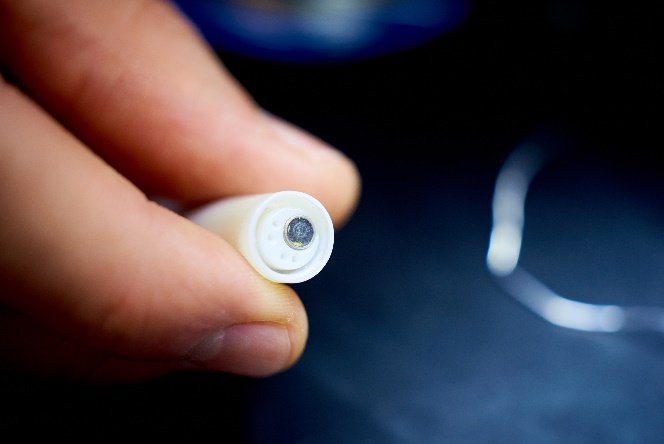The HydroJet: a portable platform for low-cost gastric cancer screening

Research lead
Professor Pietro Valdastri
Research team at University of Leeds
Dr Joseph Norton, Simone Calo
Research team at Vanderbilt University
Prof. Keith Obstein, Federico Campisano
Research support
Engineering and Physical Sciences Research Council – Global Challenge Research Fund Grant
The Royal Society – Global Challenge Research Fund Grant
We are developing a novel portable platform designed to enable ultra-low-cost gastroesophageal cancer screening in remote settings, with a focus on rural and underdeveloped areas of China where this disease has a very high incidence and mortality. Gastroesophageal cancer has the highest global mortality rate among other forms of cancer. More than one third of new cases worldwide are concentrated in China.

Screening programmes have been shown to be extremely effective in reducing the mortality rate through early detection, but are expensive and difficult to implement in low-resource settings and rural areas. This is particularly relevant in China, where inequitable distribution of medical resources to urban areas (which contain 30% of the population but receive 70% of the medical resources), shortage of doctors in rural regions and greater distance to access them translate into a very large cancer survival divide. For this reason, there is a pressing need to develop cost-efficient and sustainable technologies for endoscopic gastroesophageal cancer screening.
Leveraging our pioneering work in the field of robotic capsule endoscopes, we are developing a disposable, soft-tethered, swallowable, endoscopic capsule. Design innovations include water-jet actuation for mobility and visualization, a portable platform, disposable components, and autonomous operation based on image analysis and feature extraction. After each procedure, the capsule outer shell and soft tether are discarded, while the endoscopic camera is reclaimed without reprocessing. The miniature tethered “pill camera” facilitates a comfortable unsedated cancer screening exam (target cost per procedure £2 and capital cost ca. £400 vs £80,000 for existing technology).
The proposed platform is designed to fit in a single suitcase (airline carry-on size, 10kg) and operate autonomously without the need for a gastroenterologist or a skilled clinician. The aim for this research is to establish a feasible model for gastroesophageal cancer screening at an ultra-low cost that can be implemented in rural and poorly resourced areas. The approach can be extended to other low- and middle-income countries (nearly 70% of gastric and oesophageal cancer cases are concentrated in these areas) or equally to modern healthcare systems, where cost savings may be achieved through performing screening in day care units.
Relevant publications
- Campisano F; Gramuglia F; Dawson IR; Lyne CT; Izmaylov ML; Misra S; De Momi E; Morgan DR; Obstein KL; Valdastri P (2017) Gastric Cancer Screening in Low-Income Countries: System Design, Fabrication, and Analysis for an Ultralow-Cost Endoscopy Procedure. IEEE Robotics & Automation Magazine, 24 (2), pp. 73-81.
- Caprara R; Obstein KL; Scozzarro G; Natali CD; Beccani M; Morgan DR; Valdastri P (2015) A platform for gastric cancer screening in low-And middle-income countries. IEEE Transactions on Biomedical Engineering, 62 (5), pp. 1324-1332.
